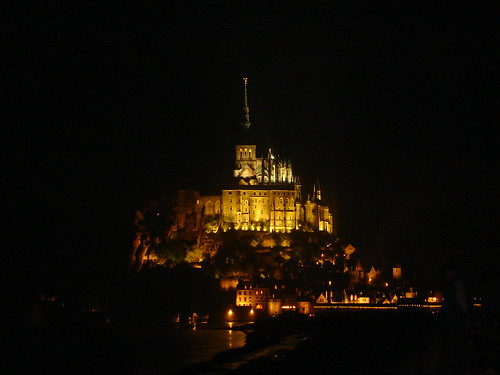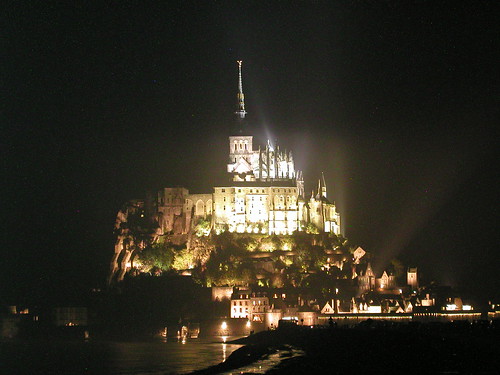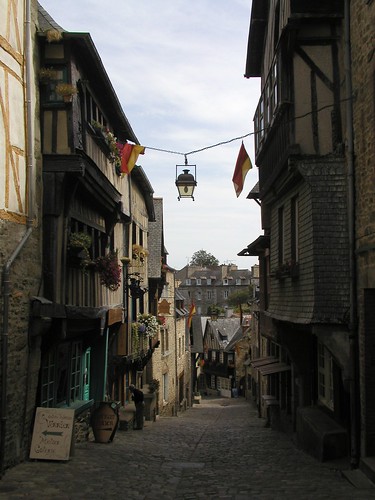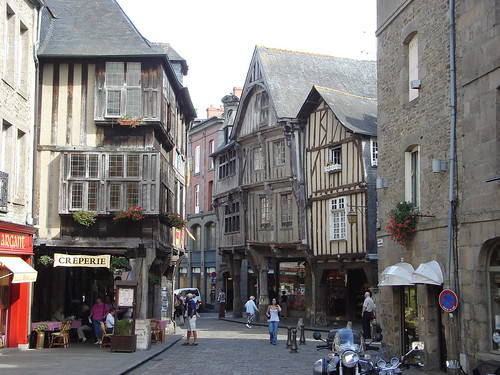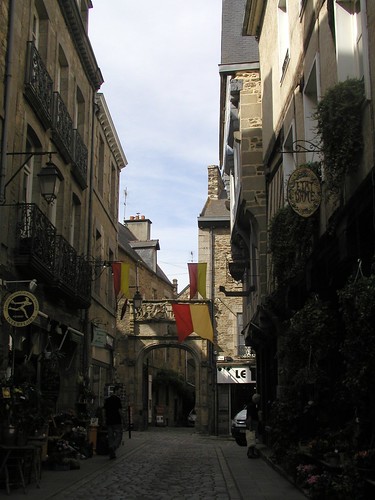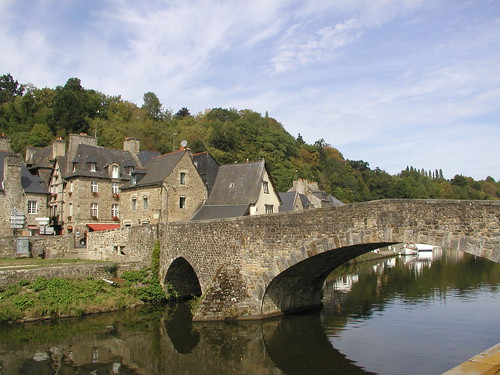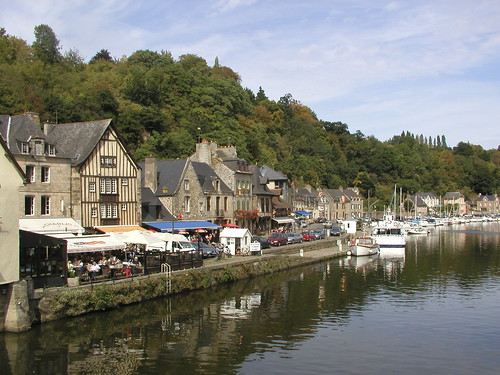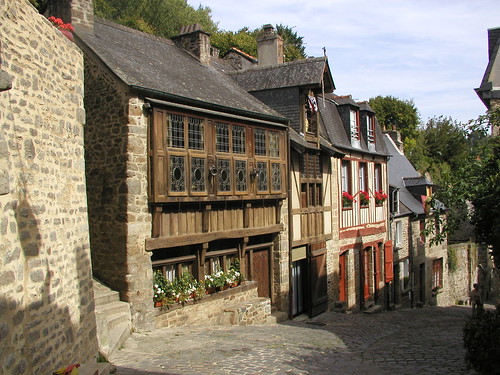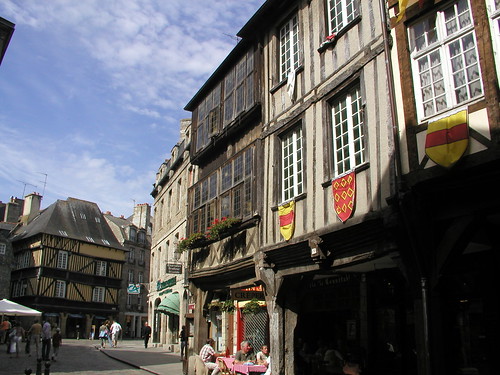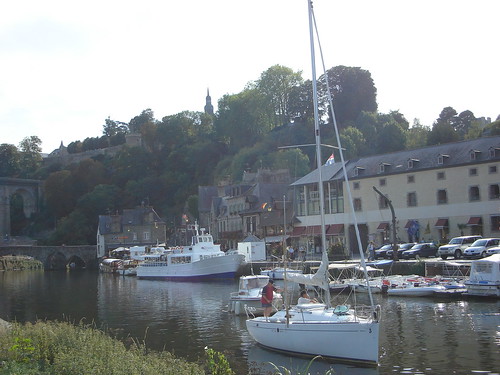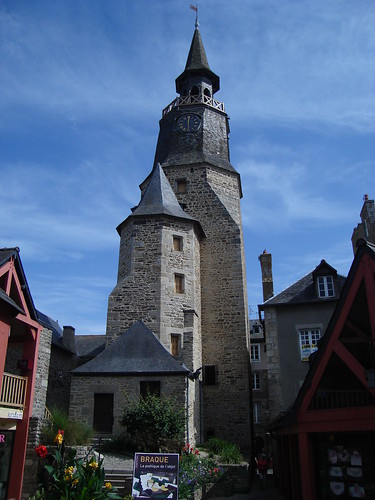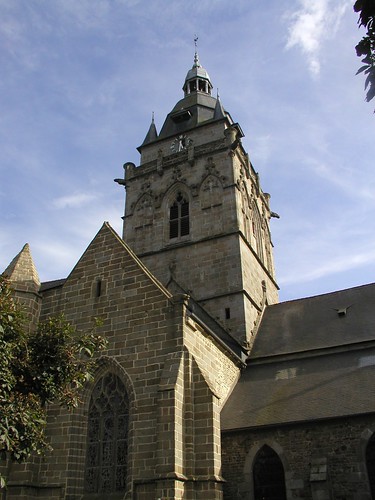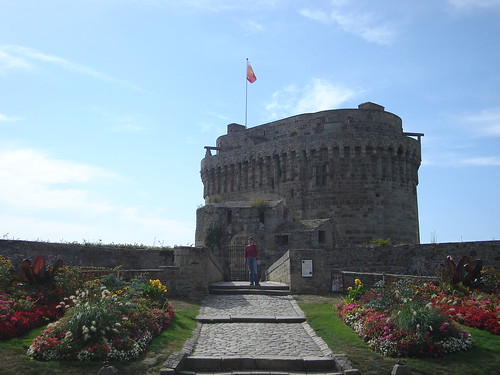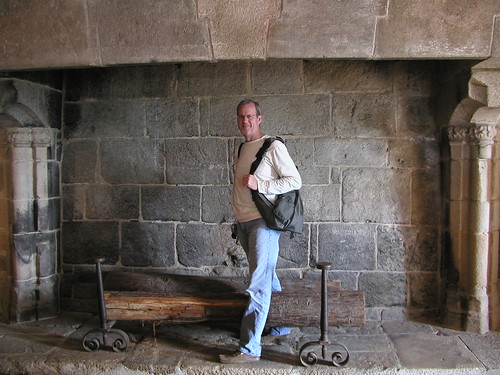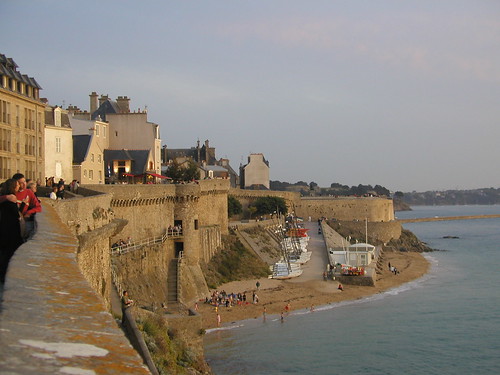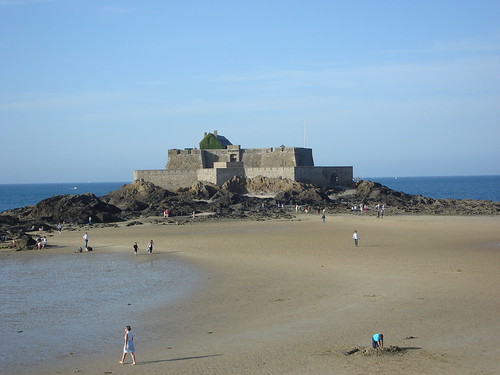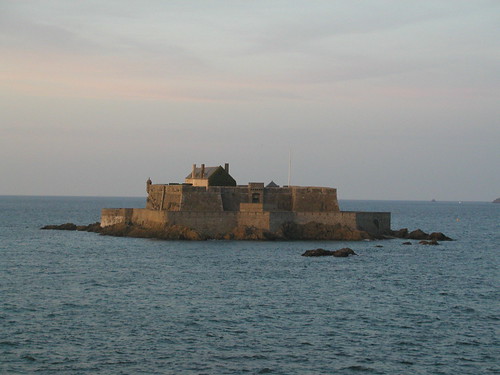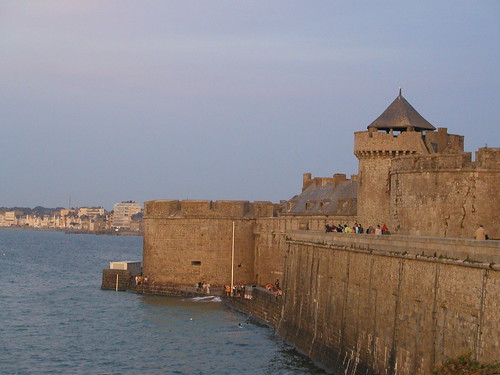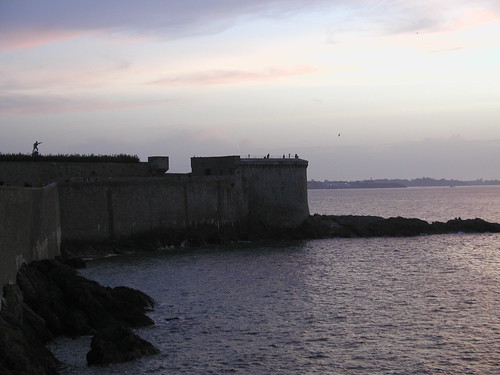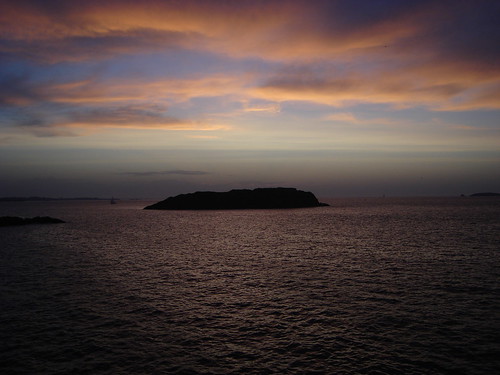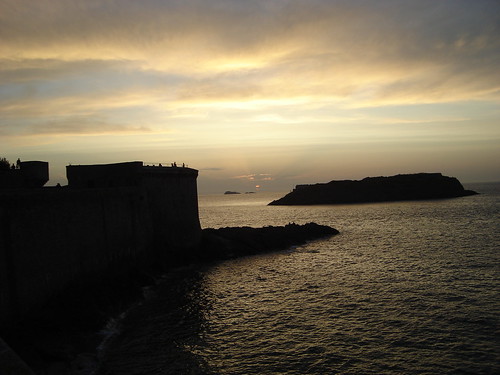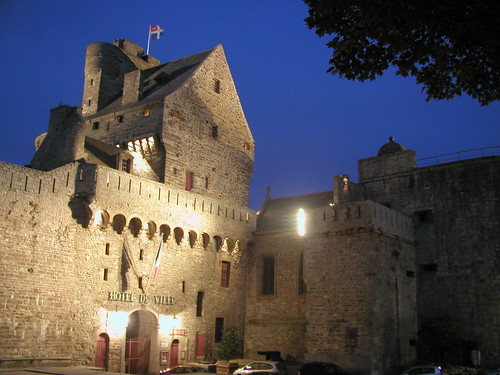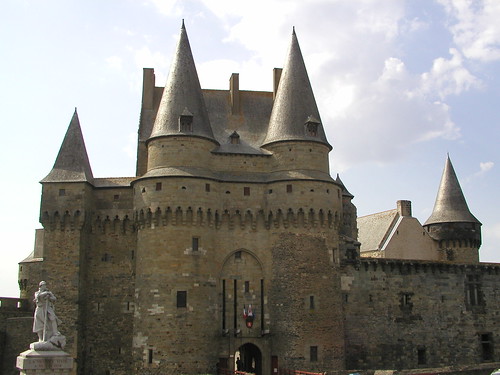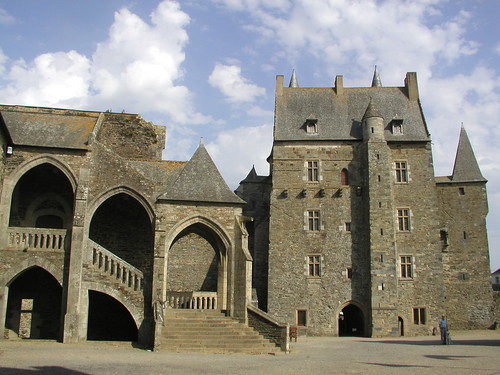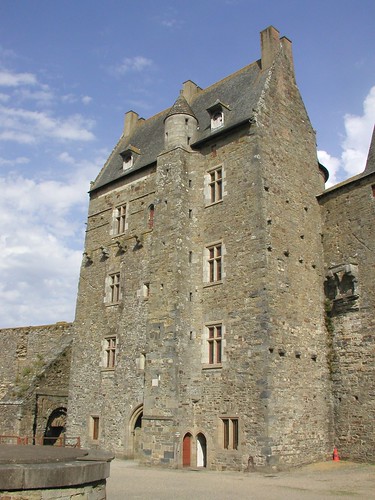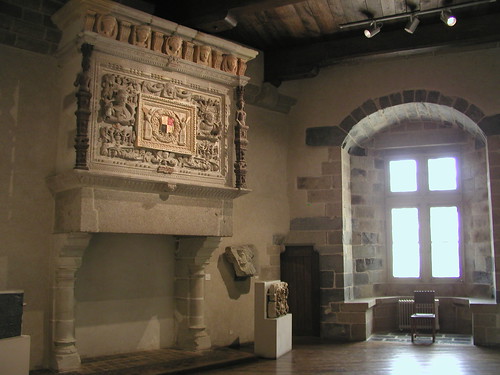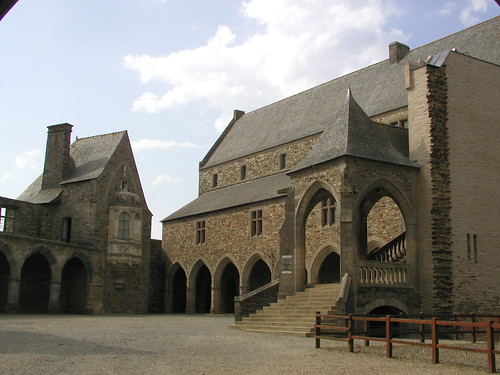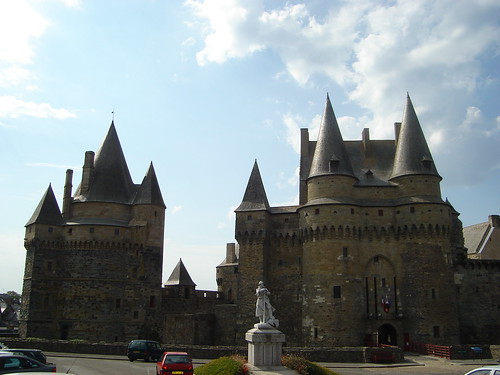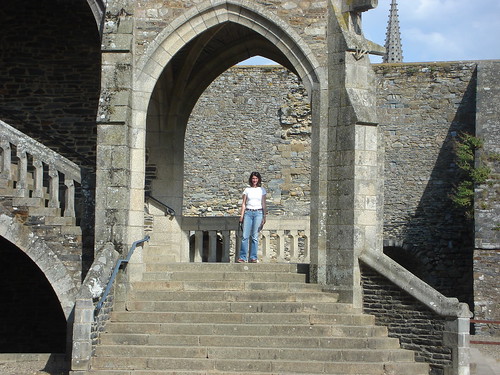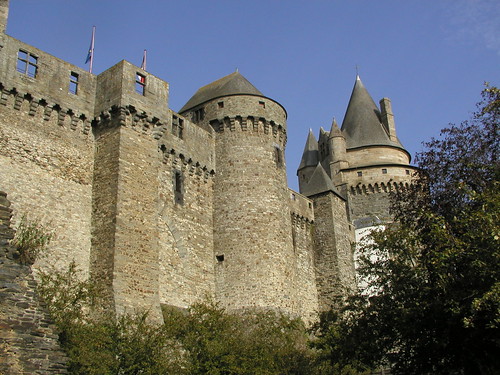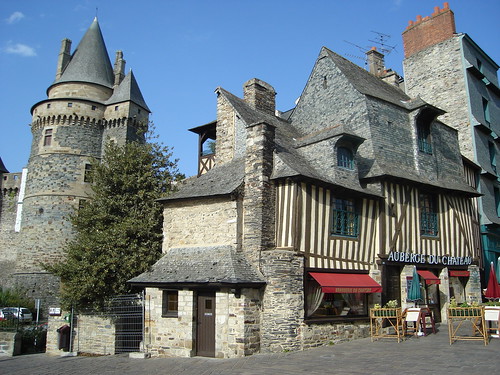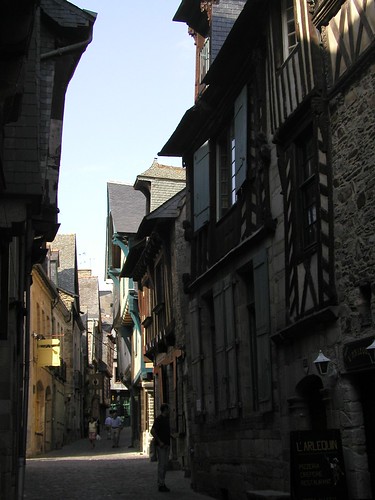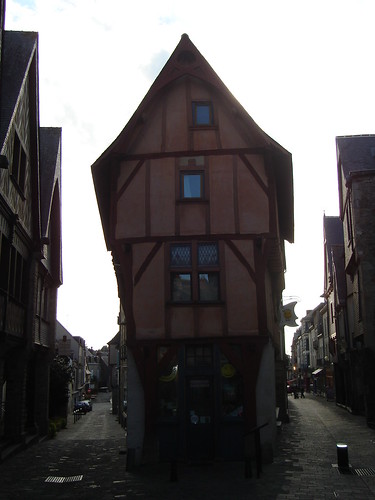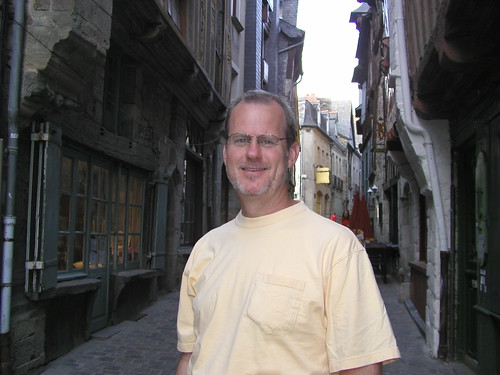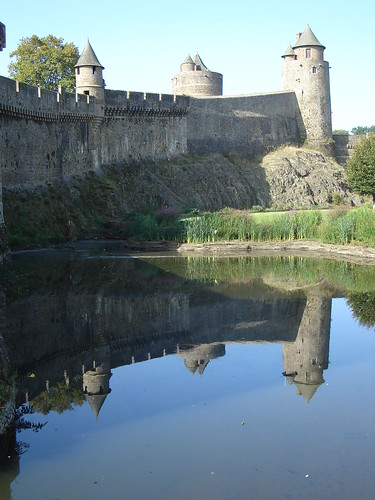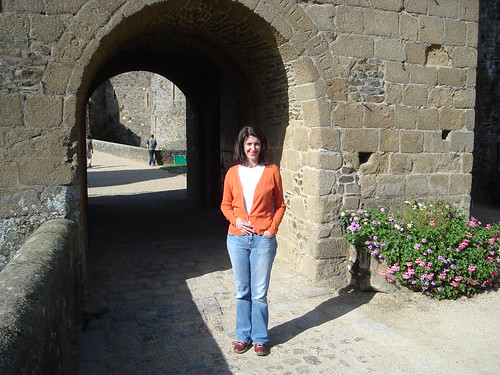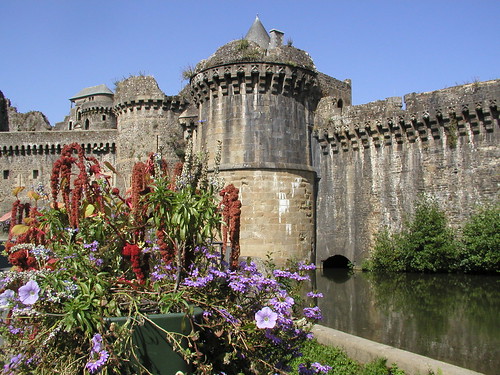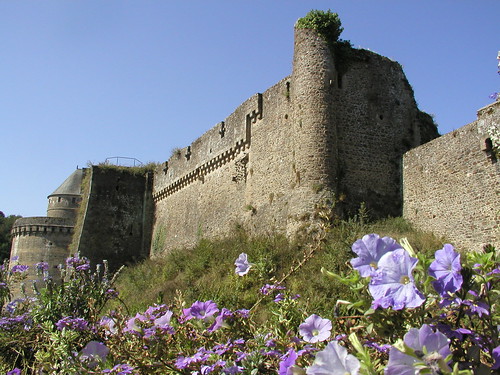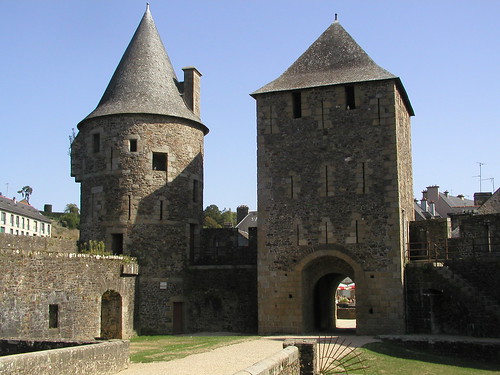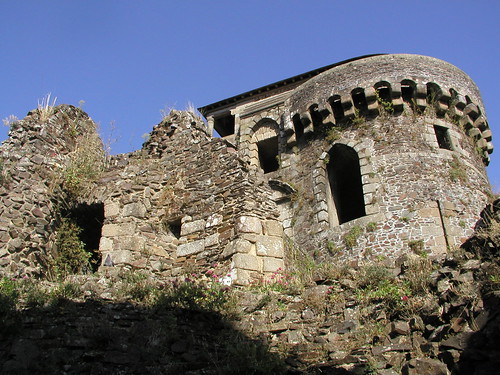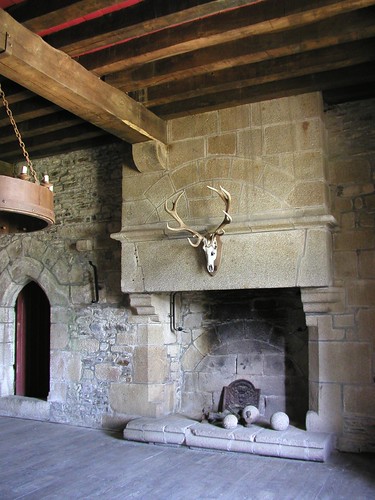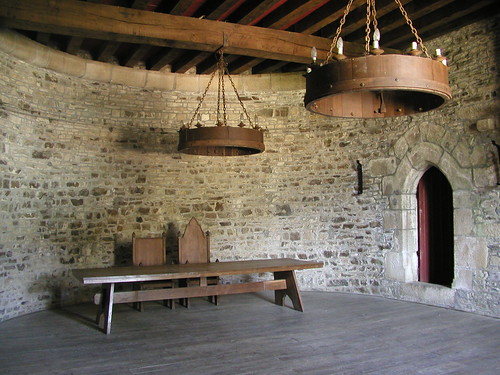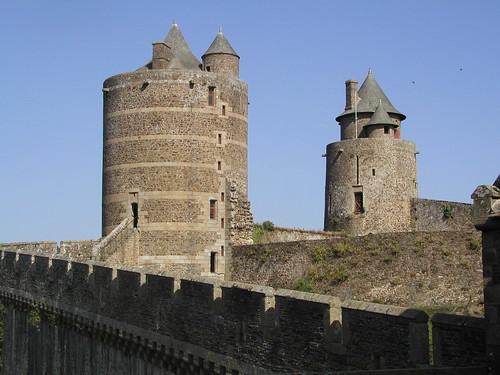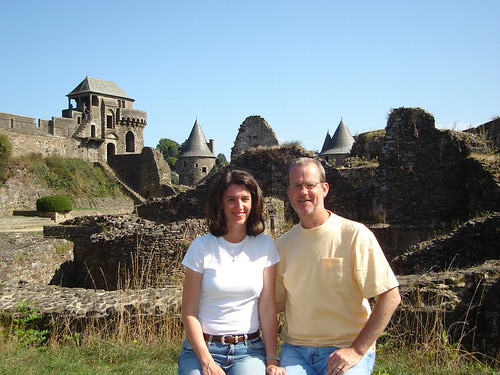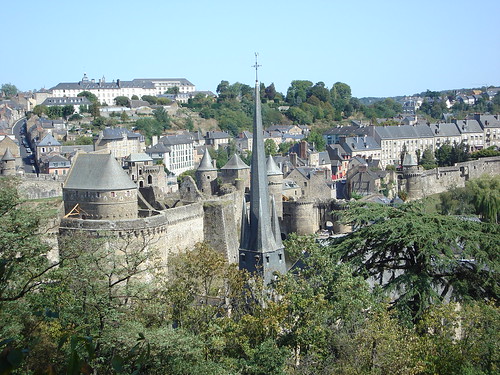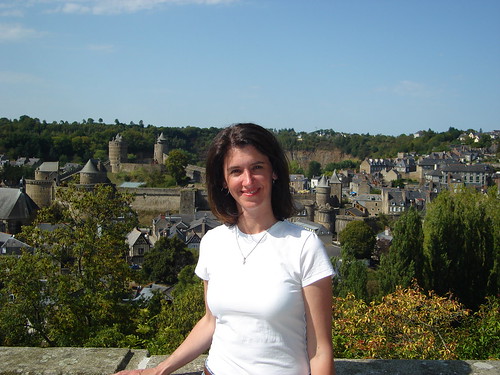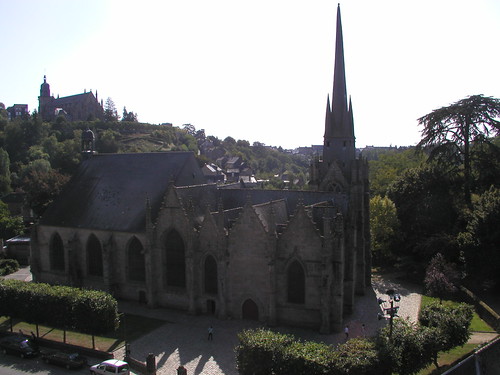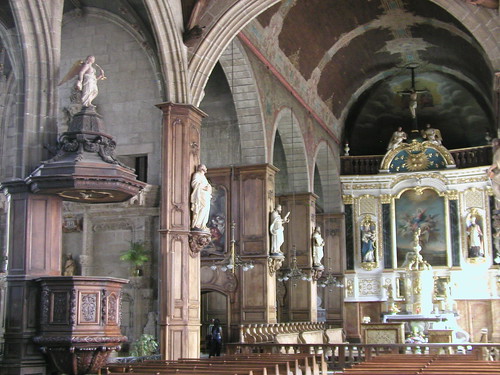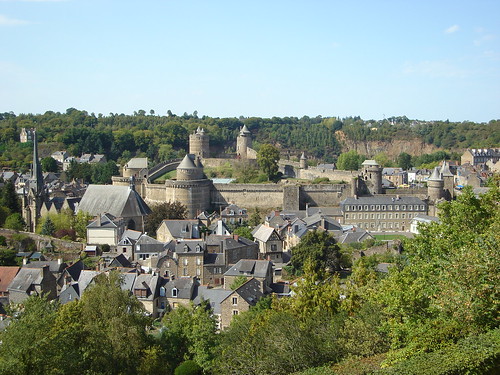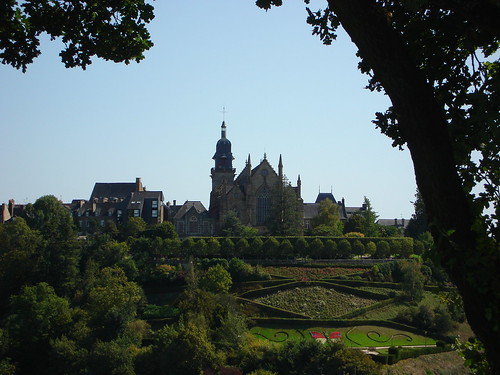Driving through Cherbourg, St.-Lo, Coutances, and Granville, we headed to THE sight we had been waiting all week to see. (I’ll spare you any more photos of Gothic churches but as you can imagine, we saw , and photographed, several more in these towns).Yes, visiting Mont-St-Michel was definitely top of the list for the France trip.
The abbey, perched on a 264 foot high rock just a few hundreds yards off the coast; is surrounded by water during the highest tides and by desolate sand flats the rest of the time (and in some spots, quick sand). While tides are extremely unpredictable, the sea can rise up to 45 feet at high tide and rushes in at incredible speed. To watch it is simply amazing.
Mont-St-Michel from a distance.
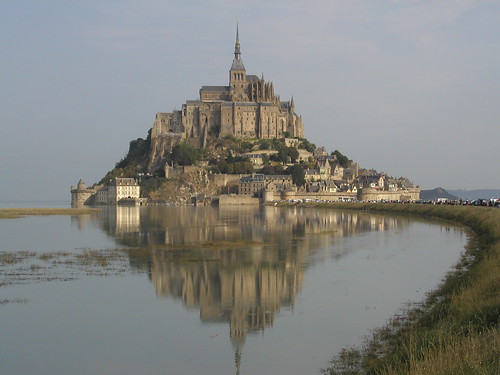
No worries, sidewalks and roadways led the Budman and I up to the entrance to Mont-St-Michel, and then began our climb to the top of the montain to visit the abbey.
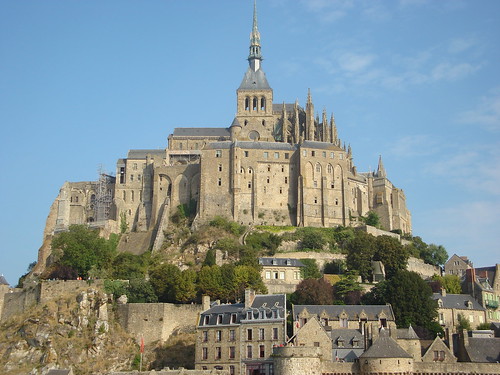
Legend has it that Archangel Michael appeared in 709 to Aubert, Bishop of Avranches, inspiring him to build this magnificent monument. The rock and shrine were soon pilgrimages that resulted in a church being built on this site in 1144. In the 14th century, monks arrived and built the abbey, with its construction taking over 500 years, resulting in its present day construction. Further architectural changes in the 15th and 16th centuries resulted in a number of architectural styles being evident. In the 17th century, monastic independence resulted in those monks began to veer away from strict religious teachings and became…shall we say…a bit decadent. The abbey then became a French prison, followed by a historic shrine maintained by the French government. Today, as in medieval times, monks live and work here.
Here, tourists begin the trek to the top of the abbey; sadly, many tourists never make it past the souvenir shops…what a shame! It is not for the faint hearted, though a slow and steady walk is all it takes if you’re worried.
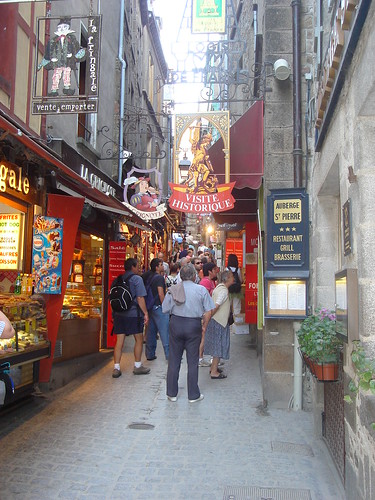
The
Grand Degre, a steep, narrow staircase leading to the abbey’s entrance that leads to the
Saut Gautier Terrace (named after the prisoner who jumped to his death outside it).
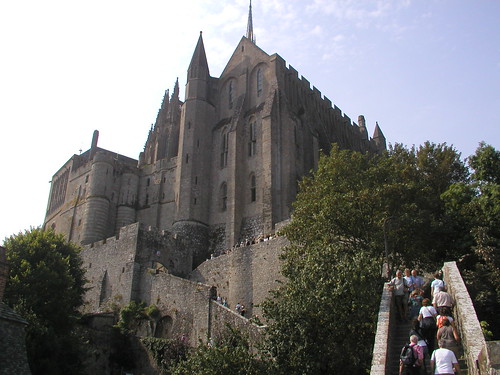
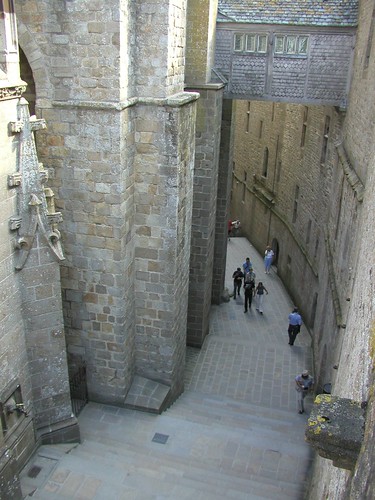
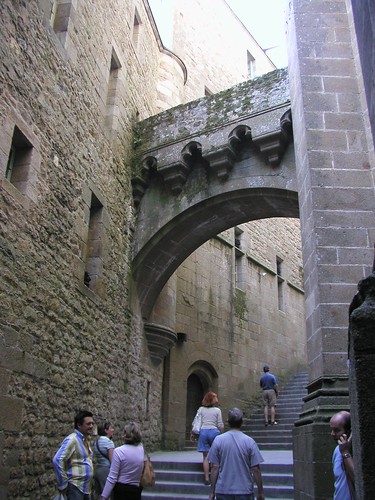
Interior of the church.
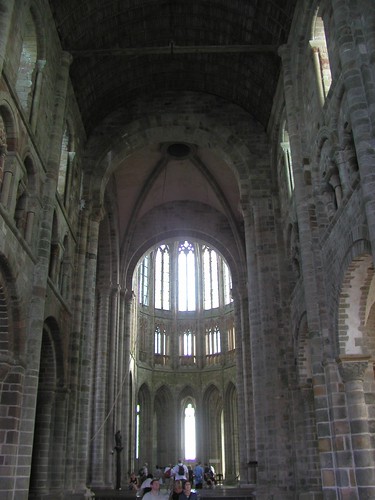
The monks’ reading and eating room.
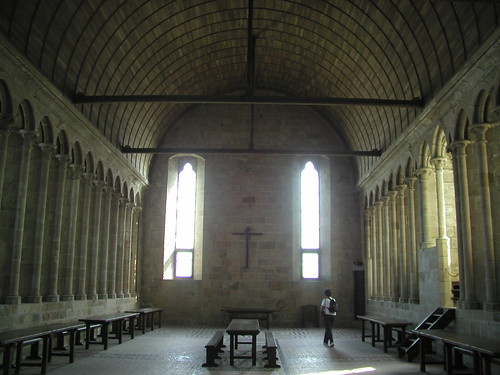
Other views of Mont-St-Michel.
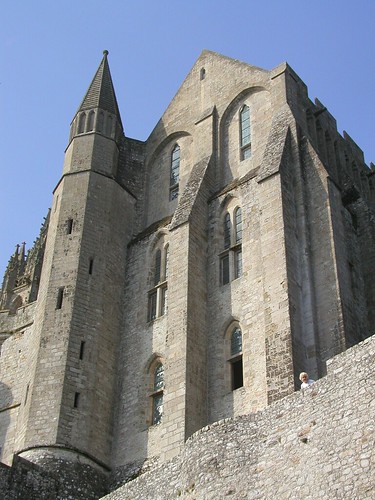
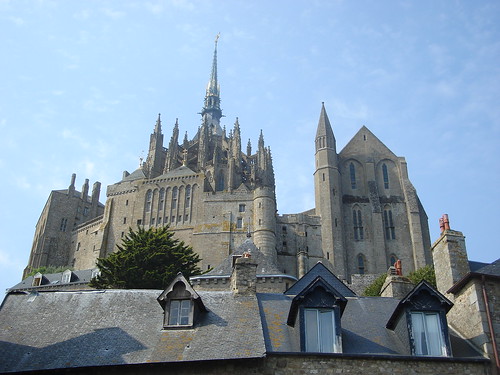
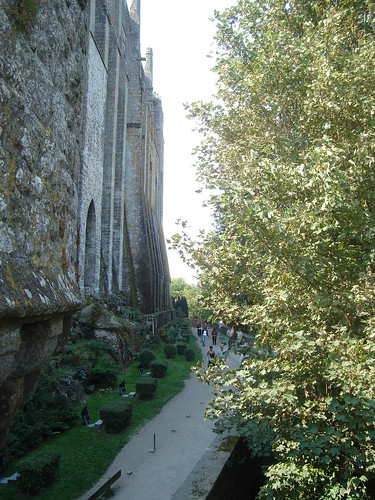
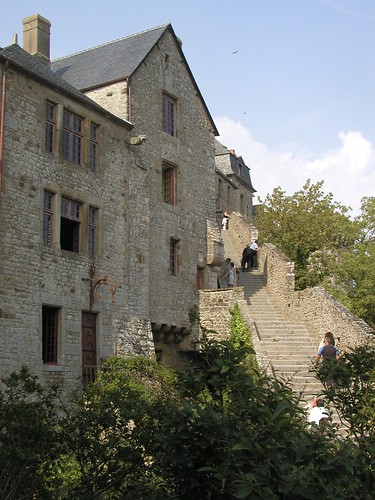
The Budman and Hachie Gal departing Mont-St-Michel…the afternoon sun is hitting the abbey and church.
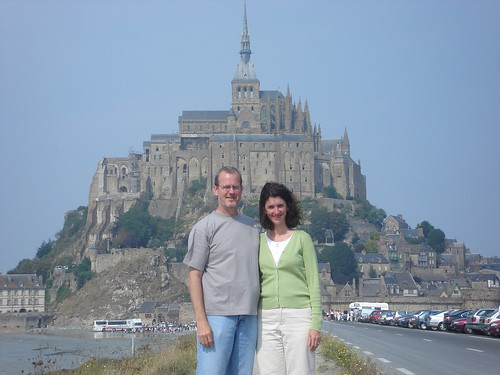
Mont-St-Michel by twilight,
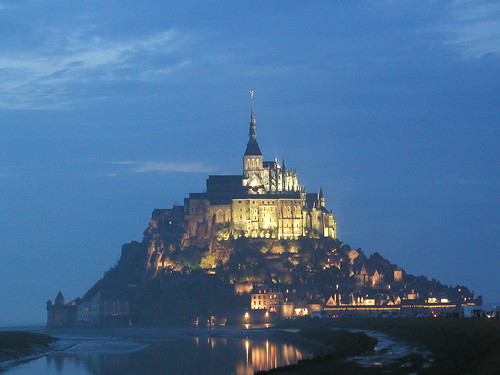
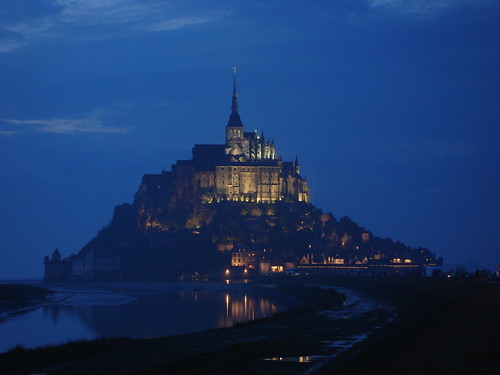
and then finally illuminated at night.
